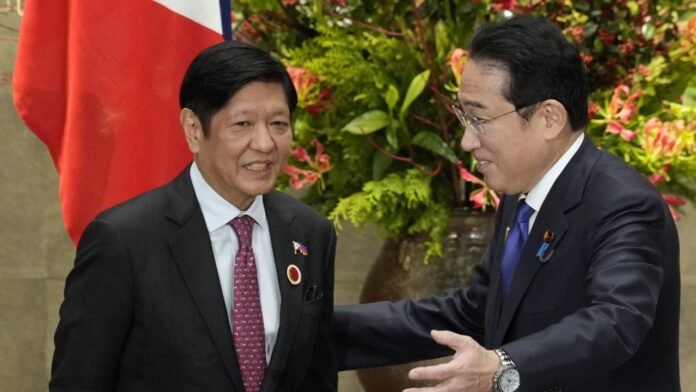Japan and the Philippines have signed a defense agreement in response to China’s military presence. It marks a significant step in their defense collaboration to enhance military capacity and regional security.
Signing Ceremony
Japanese Foreign Minister Yoko Kamikawa and Philippine Defense Secretary Gilberto Teodoro signed the agreement in Manila. The President of the Philippines attended the ceremony, highlighting its significance to both countries. Such high-level representation shows that both states commit to this alliance.
Key Provisions of the Agreement
Several key provisions are outlined in this pact for cooperation between Japan and the Philippines:
Military Exercises: Under this deal, Japanese forces will conduct military exercises on Philippine soil. These drills will improve interoperability and operational readiness between the two nations’ armed forces to respond efficiently to any regional threat.
Combat Training: The accord allows Filipino troops to train in Japan too. The training aims to raise combat skills within the Philippine military by providing them with advanced techniques necessary for contemporary warfare.
Strategic Importance
The defense agreement comes when there has been growing concern over China’s expanding military power projection capabilities across the Asia Pacific region. Tokyo and Beijing have expressed concern about Beijing’s enhancing its self-defense force posture. They see it as an attempt to deter and prevent potential aggression against them or their allies, thus ensuring stability within the broader area around these islands, mainly through strengthening defense ties.
Broader Implications
This defense agreement has far-reaching implications for Japan-Philippine bilateral relations and broader Southeast Asian security dynamics vis-à-vis regional powers like China. It signals that all countries concerned should work together towards maintaining the status quo ante bellum throughout APAC (Asia Pacific). Furthermore, such pacts reflect the strategic value of alliances/partnerships when dealing with shared threats from non-state actors, however weak they might seem initially.
Future Prospects
The defense agreement is expected to pave the way for increased military cooperation between Japan and the Philippines. Joint exercises, intelligence sharing, and capacity building are likely areas of focus in the future. Regarding regional peace architecture, this partnership could add an essential element towards ensuring stability in the broader region.
This agreement represents a significant milestone in relations between Japan. And the Philippines but also sets the stage for more joint military actions against common enemies in the future.


